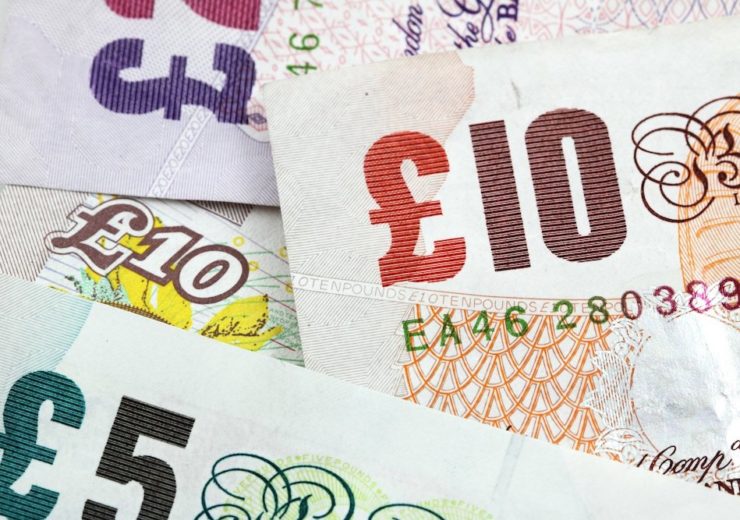UK-based charity WRAP believes the full implementation of a circular economy could create 500,000 new jobs in the country after Covid-19

Charity WRAP has outlined six steps that need to be taken to use circularity to get the UK economy back on track (Credit: Pixabay)
The circular economy holds the key to economic growth after the Covid-19 pandemic, according to sustainability charity the Waste and Resources Action Programme (WRAP).
It says the business model, which is a system that sees items being produced to be reused, could create 500,000 new jobs.
As part of its work, the not-for-profit has outlined six steps that “need” to be taken for circularity to boost the UK economy.
CEO Marcus Gover said: “WRAP has a 20-year history of partnering with the government, but never have we seen such a need – and such an opportunity – to adopt a circular economy in the UK.
“We urge policymakers here and internationally to recognise its potential as a catalyst for job creation and growth, and we call on them to take immediate steps to lock in circularity to their post-COVID recovery plans.”
UK Government should ‘accelerate the move towards a circular economy after Covid-19’
Many organisations, ranging from NGOs to business groups, have called for a sustainable recovery from the Covid-19 pandemic, often using phrases like the “Green Recovery” or “Build Back Better” to get this message across.
In April, We Mean Business coalition CEO Maria Mendiluce wrote an article for the World Economic Forum calling for a Covid-19 recovery built around economic stimulus packages boosting the wellbeing of citizens, as well as tackling climate change.
In the piece, she wrote: “We cannot go back to business-as-usual and lock in old habits, pollution, spending and infrastructure that will inflict further harm on the very people, communities and economies that these stimulus packages seek to support.”
On 5 June, the intergovernmental Organisation for Economic Co-operation and Development (OECD) published its “Build Back Better” plan to develop a sustainable, resilient recovery after Covid-19.
As part of this, the organisation believes resilience in supply chains needs to be improved, alongside accelerating the shift towards circular economy principles.
The OECD’s report said: “Economic recovery policies may provide an opportunity to improve resource efficiency overall, including through exploiting job creation possibilities related to the circular economy.”
It also adds that governments’ proposed recovery measures present an opportunity to provide greater circularity in supply chains.
Like OECD, WRAP believes the circular economy can play a role in creating jobs.
In 2015, alongside charity and think tank the Green Alliance, it found that an ambitious plan to move to a circular economy could create 500,000 jobs and reduce unemployment by more than 100,000.
WRAP also says the system could offset around one-fifth of expected future losses in skilled employment, which could help address structural unemployment in impacted regions.

As such, it recommends the UK accelerates its translation to a circular economy, focusing particularly on operators that generate new net jobs.
One hallmark of the circular economy is resource reuse with the system designed to limit dependence on raw materials.
The charity believes that a more circular use of materials could potentially cut the exposure of the UK economy to this over-dependence on raw materials, and believes that government, regions, cities and businesses should adopt a “Target, Measure, Act” approach to increasing circularity after Covid-19.
It also says the implementation of the UK Government’s Resources and Waste, Industrial and Clean Growth Strategies need to be accelerated.
This is due to stakeholders’ need for certainty on the direction and speed of travel to invest and gain the economic and environmental benefits that these measures could bring.
One way WRAP believes this could be done is through the establishment of a joint committee to ensure cross-departmental collaboration on circular economy policies.
It also recommends publishing progress reports on the implementation of the Resources and Waste, Industrial and Clean Growth Strategies by the end of 2020, providing stakeholders with greater certainty.
Post-Covid-19, some businesses may look toward the UK Government for financial support, which could provide an opportunity for it to ensure businesses “Build Back Better”.
WRAP, therefore, recommends that any financial support provided by the UK Government to companies with a large material footprint should be contingent on those firms increasing the circularity of their operations.
The charity is also calling for the government to drive up the adoption of circular business models.
It suggests this could be done through the introduction of a targeted policy on financial, business support and citizen engagement measures, including the introduction of a legal “right to repair” system, along with an improved collection of better data on circular economy activities.
Due to the different nature of circular businesses, it could be argued that they would benefit from tailored forms of financial support.
Because of this, WRAP recommends that guidance should be provided to the banking sector that highlights the distinct challenges of financing circular business models.
It also suggests that the UK Government and banking sector review their approaches to providing future financial support to businesses, ensuring they incentivise circular companies.
